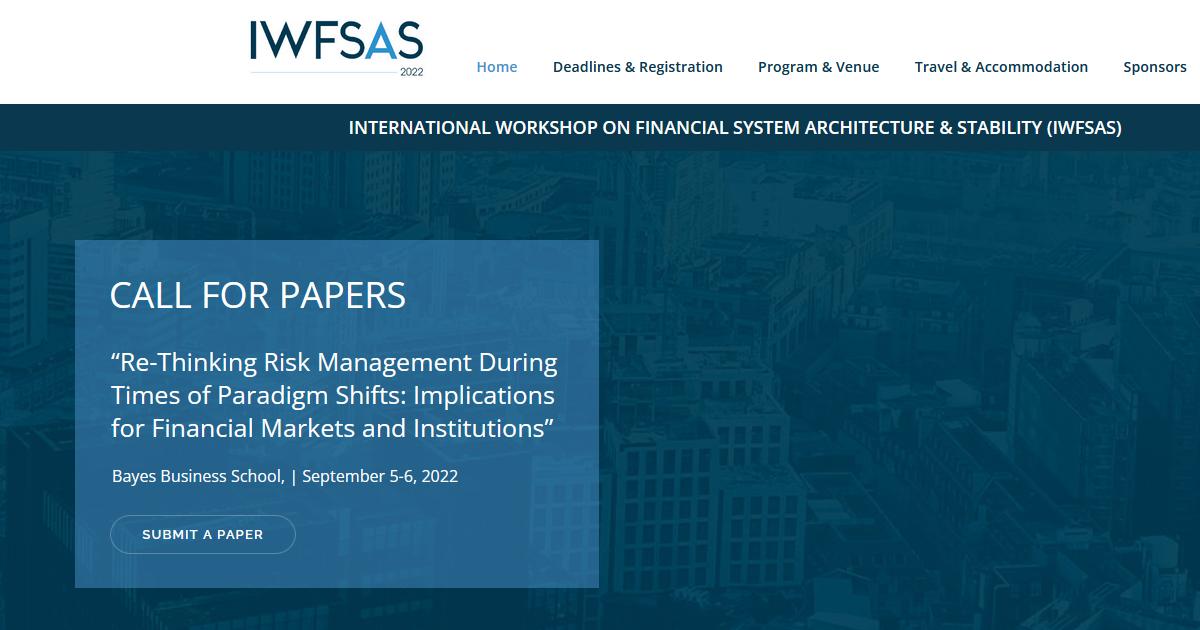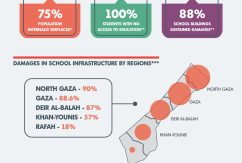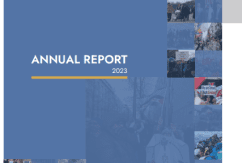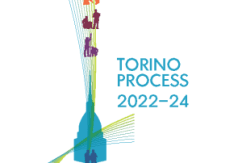IWFSAS 2022 Call for Papers “Re-Thinking Risk Management During Times of Paradigm Shifts: Implications for Financial Markets and Institutions”

The International Workshop on Financial System Architecture and Stability (IWFSAS) provides a forum for academic researchers, practitioners, and policy makers to discuss current issues related to the structure and design of financial systems and their impact on macro-financial stability and sustainable economic development.
This year’s IWFSAS meeting will take place at Bayes Business School, City, University of London, on 05 – 06 September 2022. The conference is scheduled to take place in person.
The Seventh IWFSAS conference offers leading academics, practitioners, and policymakers the opportunity to discuss innovative research on a range of topics related to novel risks for financial institutions and markets, from the increased geopolitical risks to the post- COVID-19 pandemic recovery and climate-related financial issues.
This call for papers invites submissions of high-quality unpublished manuscripts on topics related to the impact of new risks on the financial sector, including, but not limited to:
• Climate risk and asset pricing
• Climate stress testing; Climate-related financial disclosures, reporting and other regulatory issues
• Central banks and the greening of the financial sector
• Post-pandemic recovery and green stimulus policies
• Geopolitical risks and impact on financial markets
• Monetary policy in the post-COVID recovery
• ESG risks and sovereign and corporate credit spreads
• Debt sustainability and international cooperation for debt relief
• Insurance, banking & pension funds exposure to novel risks
• Impact investing and other sustainable finance trends
• Nature-related financial risks and opportunities
• Corporate strategies towards transition and physical risks of climate change
• Corporate social responsibility in the post-pandemic world and rising political tensions
• Financial innovation and the U.N. Sustainable Development Goals (SDGs)
• Financial inclusion and technological change
• Gender, race and the role of financial institutions and markets
• Shareholder engagement vs divestment related to ESG issues
• Sustainability and stability of financial systems
• Emerging business models and asset classes
• Novel lending technologies and risk management
• Rising inequalities, supply chain disruptions and impact on financial sector
Other Opportunities





































